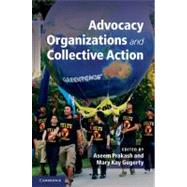
Note: Supplemental materials are not guaranteed with Rental or Used book purchases.
Purchase Benefits
What is included with this book?
| List of figures and tables | p. ix |
| Notes on contributors | p. x |
| Preface | p. xv |
| Acknowledgments | p. xvi |
| Advocacy organizations and collective action: an introduction | p. 1 |
| The institutional environment and advocacy organizations | p. 29 |
| The price of advocacy: mobilization and maintenance in advocacy organizations | p. 31 |
| Acting in good faith: an economic approach to religious organizations as advocacy groups | p. 58 |
| Institutional environment and the organization of advocacy NGOs in the OECD | p. 91 |
| Advocacy tactics and strategies | p. 131 |
| The market for human rights | p. 133 |
| Brand identity and the tactical repertoires of advocacy organizations | p. 155 |
| Shopping around: environmental organizations and the search for policy venues | p. 177 |
| International advocacy and market structures | p. 203 |
| The political economy of transnational action among international NGOs | p. 205 |
| Advocacy organizations, networks, and the firm analogy | p. 229 |
| Shaping civic advocacy: international and domestic policies toward Russia's NGO sector | p. 252 |
| Toward a new research program | p. 281 |
| Rethinking advocacy organizations? A critical comment | p. 283 |
| Conclusions and future research: rethinking advocacy organizations | p. 295 |
| Index | p. 308 |
| Table of Contents provided by Ingram. All Rights Reserved. |
The New copy of this book will include any supplemental materials advertised. Please check the title of the book to determine if it should include any access cards, study guides, lab manuals, CDs, etc.
The Used, Rental and eBook copies of this book are not guaranteed to include any supplemental materials. Typically, only the book itself is included. This is true even if the title states it includes any access cards, study guides, lab manuals, CDs, etc.